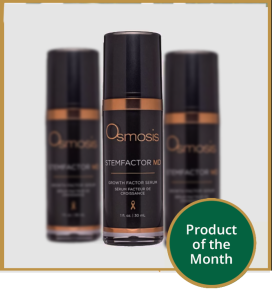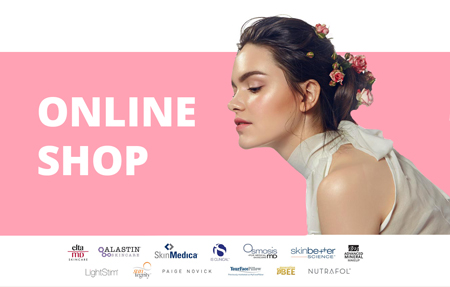Various factors contribute to healthy, youthful skin. We can impact many of them, even microscopic processes such as regeneration of skin cells that produce the skin’s primary building block – collagen.
This article explains how collagen benefits our skin and what we can do to maintain and enhance its levels.

What Is Collagen?
Collagen is the most abundant protein in the body, accounting for 70% of protein in the dermis (middle skin layer) and 30% of total protein. It is primarily produced by fibroblast cells in the dermis.
As the main component of connective tissue, collagen gives support and strength to skin, muscles, tendons, bones, teeth, nails, and hair. It is also found in blood vessels and the intestinal lining.
Collagen levels determine the skin’s ability to fight external damage and heal. Collagen declines over time, causing the skin to sag, thin, wrinkle, and lose its luster.
Note: Elastin is another important protein for our bodies that is often mentioned alongside collagen. Learn about the differences between elastin and collagen.
The Types of Collagen
Scientists recognize 29 types of collagen, depending on how the molecules are arranged and where in the body they are used. The most abundant collagen types include:
- Type 1 – Accounts for 90% of collagen; found in the skin, bones, tendons, and ligaments.
- Type 2 – Found in elastic cartilage.
- Type 3 – Found in muscles, organs, and blood vessels.
- Type 4 – Found in skin.
- Type 5 – Found in some skin layers, hair, the placenta, and cornea.
What Causes the Loss of Collagen in the Skin?
Aging is the primary cause of collagen loss. The protein’s production peaks in childhood and starts declining in our 20s. The following factors also contribute to collagen deficiency and premature skin aging.
- Sun and UV damage increases the breakdown of existing collagen and slows down new collagen production.
- Nicotine constricts blood vessels close to the skin’s surface, preventing oxygen and nutrients from reaching skin cells, including fibroblasts, and inhibiting their activity.
- Alcohol dehydrates the body and depletes it of vitamins necessary for collagen production.
- Sugar, refined carbohydrates, and processed foods lead to glycation, the process of glucose binding to proteins to create AGES (advanced glycolytic end products), which damage fibroblasts.
- Autoimmune diseases such as lupus, rheumatoid arthritis, and scleroderma cause inflammation of the connective tissue, damaging collagen.
Note: Considering collagen production starts declining early on in life, many people wonder when is the right time to start using anti-aging products, and which types of products to resort to. Our guide explains when to start using anti-aging products and presents the best products for different age groups.
How Do I Know My Skin Lacks Collagen?
No blood tests can determine collagen deficiency, but some symptoms may point to premature degradation of collagen. They include:
- Wrinkles
- Thinning and sagging skin
- Dry and crinkly skin
- Sunken eyes
- Brittle hair and nails
- Stiffer joints
- Weak and aching muscles
- Gastrointestinal problems
- Problems with blood flow
- Mouth ulcers
- Open sores
Collagen Benefits for Skin
Healthy collagen levels provide various benefits and contribute to a glowing complexion.
1. Improves Hydration
Collagen is a natural humectant and moisturizer, binding water and reducing transepidermal water loss to maintain adequate moisture levels in the skin throughout the day. Hydration improves the skin’s texture and elasticity, making it plump, smooth, and soft.
2. Improves Skin Elasticity
Sufficient collagen levels enable the skin to stretch and bounce back into shape. Collagen also enhances elastin production – another protein responsible for maintaining skin elasticity and suppleness.
3. Strengthens the Skin’s Natural Barrier
Collagen improves skin barrier function in several ways:
- Improves hydration, making the skin more resilient.
- Supports the production of elastin, providing elasticity and firmness.
- Helps replace dead skin cells with new ones, thickening the outermost layer and protecting the skin from environmental aggressors.
4. Reduces Wrinkles
Collagen’s firming and hydrating properties help maintain smooth and supple skin, reducing the appearance of fine lines and wrinkles. Some skin experts view it as the key anti-aging ingredient.
5. Assists with Wound Healing
When the skin is injured, the body increases fibroblast activity to produce more collagen and help repair the wound. Collagen also plays a role in the remodeling phase, reorganizing collagen fibers and strengthening damaged tissue. Finally, collagen improves the immune response by reducing inflammation after the injury.
How to Restore Collagen in the Skin?
If you suspect collagen deficiency or want to improve the state of your skin, these natural solutions and cosmetic treatments can help restore collagen.
1. Nutrient-Dense Diet
Several nutrients assist with collagen synthesis, including vitamin C, zinc, copper, and amino acids that make up collagen - proline, glycine, and hydroxyproline. Incorporate foods with these ingredients into your diet to slow down the breakdown of natural collagen.
Great sources of collagen-friendly nutrients include:
- Vitamin C - Citrus fruits, peppers, berries, greens.
- Proline and hydroxyproline - Meat, bones, fish, mushrooms, cabbage, asparagus, egg whites, peanuts.
- Glycine - Meat, pork skin, legumes, peanuts, dairy, tofu.
- Copper - Lobster, oysters, shiitake mushrooms, liver, nuts, seeds, greens, tofu.
- Zinc - Oysters, meat, beans, chickpeas, nuts, greens, whole grains, dairy.
Animal foods that contain high concentrations of collagen include:
- Pork skin
- Chicken bone broth
- Chicken skin
- Pig knuckles
- Fish skin
- Jellyfish
2. Oral Collagen Supplements
Taking collagen supplements is a quick and easy way to get the adequate daily dosage of collagen and collagen-boosting ingredients. You can take it in pill form or add it to meals and beverages in powder or liquid form.
The Vibrant Skin Bar team recommends Elevate, a great collagen supplement designed to stimulate collagen production, improve skin health, and elevate other important aspects of life.
3. Skincare Products
Limited research suggests certain topical products may help stimulate collagen synthesis. Studies show products with collagen peptides may improve the skin’s moisture levels, firmness, and elasticity.
The American Academy of Dermatology Association recommends using serums and creams with retinoids. These are vitamin A derivatives, such as retinol and retinaldehyde, which have proven to be more effective in stimulating collagen production.
The Vibrant Skin Bar team recommends Osmosis MD Renew Advanced Retinal Serum for its impressive results in boosting collagen and elastin production and tightening the skin.
4. Sunscreen
Sun and UV damage is among the leading contributors to collagen degradation. Skin experts recommend protecting the skin from UV exposure with daily sunscreen application and adequate clothing – wide-brimmed hats, sunglasses, and long-sleeved shirts.
Sunscreens that offer the best protection are broad-spectrum, block UVA and UVB radiation, and have a sun protection factor (SPF) of at least 30.
Note: Learn how to choose a sunscreen for your needs.
5. Dermal Fillers
Dermal fillers are cosmetic injectables that provide volume to thinning skin and enhance hydration. Some fillers also increase the production of new collagen, such as Radiesse and Sculptra.
Radiesse contains calcium hydroxylapatite microspheres which address volume loss and act as scaffolding for new collagen growth. Sculptra is made of poly-L-lactic acid which stimulates collagen production. These injectables effectively add volume to skin and smooth lines and wrinkles.
Note: Read more about how Radiesse differs from Sculptra and how to choose the right filler for your needs.
6. Microneedling
Microneedling is a minimally invasive cosmetic treatment during which the medical provider makes superficial wounds using tiny needles to prompt skin rebuilding and the production of new collagen. The treatment helps reduce wrinkles, several types of acne scars, and hyperpigmentation.
Note: Learn more about what is microneedling and how it works.
7. Laser BBL
During a laser BBL treatment, the device sends light flashes to deeper skin layers to encourage new skin cell growth, improve tone and texture, and brighten the complexion.
Note: Read our blog post on how the BBL laser works and what to expect from the treatment.
8. Sofwave
Sofwave is a new, FDA-approved skin tightening cosmetic procedure that creates controlled injury to stimulate collagen, elastin, and hyaluronic acid production in the skin. The treatment helps reduce fine lines and wrinkles, lift eyebrows, tighten the midface area and jawline, and even reduce cellulite.
What Are the Side Effects of Taking Collagen?
No negative side effects are associated with taking collagen supplements. Some patients have reported isolated cases of nausea, bloating, heartburn, feeling full, and having an unpleasant taste in the mouth. However, most people don’t experience any adverse effects.
Read the product label to find out if the supplements contain ingredients that may cause allergies or other unwanted side effects.
Conclusion
Collagen is the skin’s primary building block, providing many skin benefits. Though it loses quality and breaks down due to aging and certain lifestyle and environmental factors, we can slow down the process with various natural products and cosmetic solutions.
Follow a nutrient-rich diet, use retinol skincare products, and try innovative cosmetic treatments to increase collagen levels and enjoy a more vibrant complexion.




